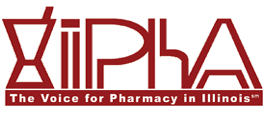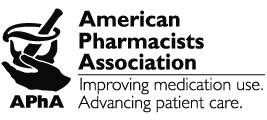How Do Regulatory Boards Affect Licensed Professionals in Illinois?
 Regulatory boards play a crucial role in overseeing and regulating licensed professionals in various industries. In the state of Illinois, regulatory boards are responsible for ensuring that licensed professionals adhere to specific standards and guidelines set forth by their respective professions. These boards have the authority to investigate complaints, enforce disciplinary actions, and protect the public from unqualified or unethical practitioners. Professionals who need to respond to inquiries from regulatory boards, defend against disciplinary action, or address any other issues that may affect their licenses can work with an attorney who is experienced in professional license defense.
Regulatory boards play a crucial role in overseeing and regulating licensed professionals in various industries. In the state of Illinois, regulatory boards are responsible for ensuring that licensed professionals adhere to specific standards and guidelines set forth by their respective professions. These boards have the authority to investigate complaints, enforce disciplinary actions, and protect the public from unqualified or unethical practitioners. Professionals who need to respond to inquiries from regulatory boards, defend against disciplinary action, or address any other issues that may affect their licenses can work with an attorney who is experienced in professional license defense.
The Role of Regulatory Boards
Regulatory boards exist to maintain high professional standards within different industries. They oversee licensing requirements, continuing education programs, and ethical conduct for licensed professionals. By doing so, they aim to protect consumers from potential harm caused by incompetent or unethical practitioners.
In Illinois, each profession has its own regulatory board within the Illinois Department of Financial and Professional Regulation (IDFPR) that is responsible for establishing rules and regulations specific to that field. Some examples of regulated professions include doctors, lawyers, nurses, accountants, engineers, architects, real estate agents, therapists (such as psychologists or social workers), and many more.
Licensing Requirements
To become a licensed professional in Illinois, a person must meet certain educational requirements and pass examinations specific to their chosen field. The relevant regulatory board oversees this process by setting these requirements and evaluating applicants' qualifications.
For example:
-
Doctors: The IDFPR oversees the licensing process for medical doctors, surgeons, physicians, etc. through the Illinois Medical Board.
-
Nurses: The Illinois Board of Nursing sets licensure requirements for registered nurses (RNs), licensed practical nurses (LPNs), and others in the nursing profession.
-
Pharmacies and pharmacists: The Illinois Board of Pharmacy addresses licensing for retail pharmacies, drug distributors, and wholesalers.
-
Psychologists: The Illinois Board of Clinical Psychologists and Social Workers handles licensing concerns for therapists, family counselors, and other mental health professionals.
-
Dentists: The Illinois Dental Board addresses licensing concerns for dentists, orthodontists, and dental hygienists.
-
Chiropractors: The Illinois Board of Chiropractors and Physical Therapists handles license-related issues for chiropractic professionals and others who provide physical therapy.
These are just a few examples. Each profession has its own specific regulatory board responsible for licensing. Different boards may follow different procedures when responding to complaints, determining whether disciplinary action is necessary, and choosing whether to renew licenses. Professionals who need to address issues related to licensing boards can protect their interests by working with an attorney who understands these procedures and has experience representing clients in disciplinary matters.
Continuing Education and Professional Development
Regulatory boards also require licensed professionals to participate in continuing education programs to ensure they stay up-to-date with the latest advancements and best practices in their fields. These programs help professionals maintain their skills, enhance their knowledge, and provide better services to the public.
The number of required continuing education hours varies depending on the profession. For example:
-
Doctors: Physicians must complete a certain number of Continuing Medical Education (CME) credits every year to maintain their medical licenses.
-
Nurses: Registered nurses and licensed practical nurses in Illinois must complete 20 contact hours of approved continuing education every two years. Advanced Practice Registered Nurses (APRNs) must complete 80 hours of continuing education.
-
Lawyers: Attorneys are required to complete a minimum of 30 hours of approved Continuing Legal Education (CLE) courses every two years.
Ethical Conduct and Disciplinary Actions
In addition to setting licensing requirements and overseeing professional development, regulatory boards have the authority to investigate complaints against licensed professionals. If a complaint is filed alleging misconduct or unethical behavior, the board will conduct an investigation into the matter.
If wrongdoing is found, disciplinary actions can be taken by the board. These actions may include reprimands, fines, probationary periods, suspension or revocation of licenses, or other appropriate measures deemed necessary by the board based on the severity of the violation committed by the licensed professional.
Contact Our Illinois Licensing Board Lawyer
If you are a licensed professional facing issues related to regulatory boards in Illinois, or if you need guidance regarding licensing requirements, license renewal, or disciplinary action, the experienced Chicago professional license defense attorney at The Law Offices of Joseph J. Bogdan, Inc. can provide the legal help you are looking for. Contact us today at 630-310-1267 to schedule a free consultation. We understand the importance of your professional license, and we will work diligently to protect your rights and interests.














